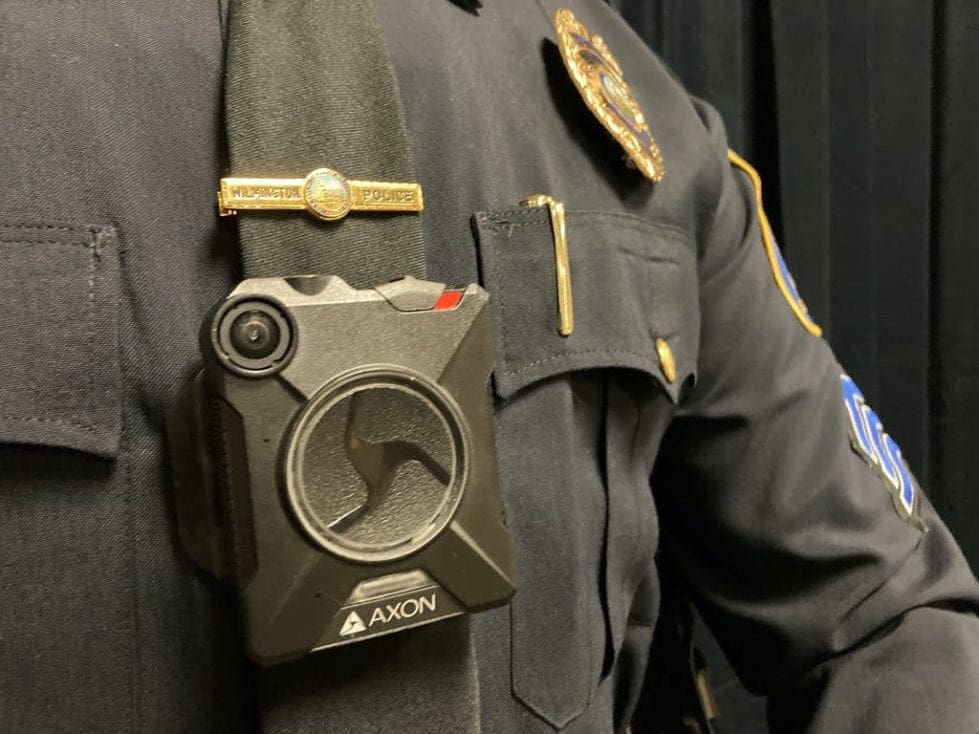

One of the suggestions for revising Delaware’s Victims’ Bill of Rights is making sure victims have access to police body cameras.
Making sure crime victims have access to police body camera footage is one of the recommendations made Monday for revising Delaware’s Victims’ Bill of Rights.
Other recommendations include an amendment to allow people to submit an impact statement during sentencing whether or not they make a statement during an investigation; eliminating the current $6 million rollover cap on compensation fund; and updating the victim notification system.
The recommendations were among dozens that came from four subcommittees of the Victims’ Bill of Rights task force, which is updating the 1992 law. The subcommittees looked at victim safety, special victims, victims’ compensation and notification procedures.
Victims now have a right to submit a pre-sentence report piece of the Bill of Rights, and the committee wants to make it clear all victims can do that, even if they don’t want to say something about a crime, said Angela Seguin, chair of the Special Victims Subgroup.
The cap on the rollover seems unnecessary, one committee decided.
“We have about a $4 million rolling balance from year to year,” said Victims’ Compensation Subgroup Chair Brian Pettyjohn, R-Georgetown.
As it stands, anything in the fund that exceeds $6 million annually is put back to the state’s general fund.
Pettyjohn said that the state has not yet reached a point where that has happened.
However, he said, protecting the long-term solvency of the victims compensation fund needs to be a priority, especially if expansions to categories of eligibility are made.
“It is possible that we would go over $6 million,” he said. “And the last thing that we would want is for money to go into the general fund and then not have enough for reimbursement to victims that put valid claims,” he said.
Victims info system
Simplifying the ease of registration and notification delivery of the Victim Information and Notification Everyday system for victims notifications was another proposal.
VINE is an automated service that allows users to track the status of an offender’s custody or court case, or the status of a protective order.
“Given some of the age and cognitive abilities of some of the victims, some folks felt as though VINE was a little bit difficult to register and get those notifications going,” Victim Notification Subgroup Chair Spencer Price said.
In addition, the subgroup recommended changing the notification system so that it includes only information directly related to incidents that impact the victim.
“Right now the vine system is person driven, so a person can be getting a notification from an offender that has nothing to do with their case,” Price continued.
That means that any legal actions regarding the offender, whether they are related to the incident involving the victim or not, are reported to people who are not involved, which causes confusion.
“Unfortunately, that’s a shortcoming but there are ways to address that,” he said.
Discussion on each subcommittee’s recommendations were minimal, which Committee Chair Brian Townsend, D-Newark, attributed to the subgroups’ focus on feasibility and efficient collaboration.
“We’re not used to such a harmonious agreement on such an important topic,” Townsend said.
A draft report of the recommendations will be distributed to committee members for review by Feb.,22.
A vote to approve the draft report is expected at the next Victims’ Bill of Rights Committee meeting Feb. 27.
If approved, which is expected, the report will be distributed to state legislators no later than March 1.
From there, matters in the report will be separated into two categories, those that require legislation and those that do not.
An example of the latter would be administrative changes that can happen without being written into law.
Townsend said state policy makers will quickly file legislation encapsulating the recommendations.
“It could be drafted in a variety of ways,” Townsend said, either as an overarching bill or multiple single-issue bills.
Non-legislative matters will be looked at to see what changes have already started happening and which need action.
Townsend said the recommendations heard today will take anywhere between four months to two years to implement.
He said there will be a need to balance timelines with reasonable expectations as staff and legislators work to enact any approved changes.
Public comments on the Victims’ Bill of Rights can be sent to [email protected].
Share this Post



